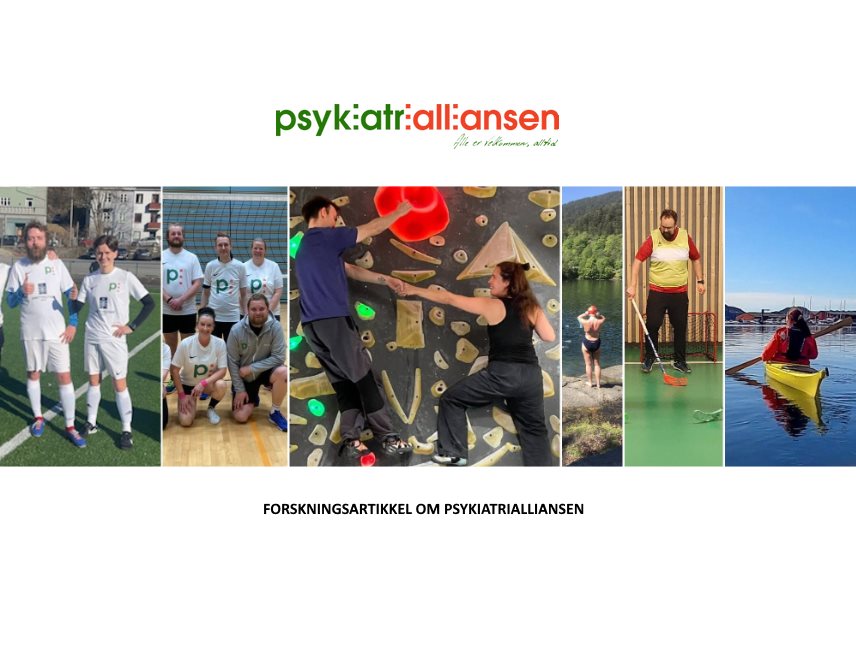 New research article on Psykiatrialliansen
New research article on Psykiatrialliansen
19. February 2025  10:17
10:17
 10:17
10:17
The Psychiatry Alliance has had a research project to explore how members and trainers experience participation, and in what ways participation contributes to experiences of social inclusion. The research came up with an uplifting answer that what the Psychiatry Alliance does makes a difference. Recently there was a new research article in English. Read more and get some of the gist of the thorough research report.
Description of the research project taken from the article: There Are No Thresholds Here: Social Inclusion Among the Participants of a Community Sports Initiative by Linda Nesse, Marit Borg, and Bengt Karlsson:
Community sports initiatives can promote social inclusion by facilitating low‐threshold participation in physical exercise with others. Due to social and systemic barriers, persons with experiences of mental health and substance use problems often have limited access to community arenas, such as those offering physical exercise. Community sports may counteract such inequities in practice. In Bergen, Norway, the community sports initiative Psykiatrialliansen (The Psychiatric Alliance) aims to promote participation in physical exercise for anyone with an interest in being involved. On a weekly basis, they arrange a range of sports and activities in ordinary sports arenas across the city, free of charge.
The purpose of the study was to explore how members and coaches experience participation, and in which ways participation contributes to experiences of social inclusion. Focus groups, paired interviews, and individual interviews were conducted with 33 participants. A two‐tiered thematic analysis was conducted based on a framework for social inclusion, resulting in the main theme “experiences of social inclusion,” with the following subthemes: (a) access to resources, (b) recognition through responsibilities and roles, and (c) a sense of belonging through relationships.
The participants described a unique and generous arena where resources were emphasized. Furthermore, they described experiences of being acknowledged through responsibilities and positive roles. Finally, the community sports initiative was viewed as a low‐threshold, inclusive community that facilitated a sense of belonging through positive relationships. The findings indicate that Psykiatrialliansen contributes to experiences of social inclusion in multiple, intersecting ways.
This research project is anchored in the University of Southeast Norway (USN), Center for mental health and addiction (SFPR). The project manager is professor Bengt Karlsson and professor emerita Marit Borg. Project collaborators have been Linda Nesse, postdoctoral fellow at the Center for Drug and Addiction Research (SERAF), UiO, doctorate in public health science and psychology and senior lecturer Asbjørn Johannessen, Center for Seniors, OsloMet, Storbyuniversitetet. Dr. Alan Pringle at the University of Nottigham has participated in the development of the research work through his role as head of the international research group "The Bergen Group".
Read the entire article here (PDF): There Are No Thresholds Here: Social Inclusion Among the Participants of a Community Sports Initiative by Linda Nesse, Marit Borg, and Bengt Karlsson
psykiatrialliansen.no © Psykiatrialliansen 2025
Email: post@psykiatrialliansen.no
Telephone: +47 451 13 754
Facebook | Instagram
Psykiatriallianse's privacy statement (GDPR)
Design and web development by: Pål Frostad
Email: post@psykiatrialliansen.no
Telephone: +47 451 13 754
Facebook | Instagram
Psykiatriallianse's privacy statement (GDPR)
Design and web development by: Pål Frostad
